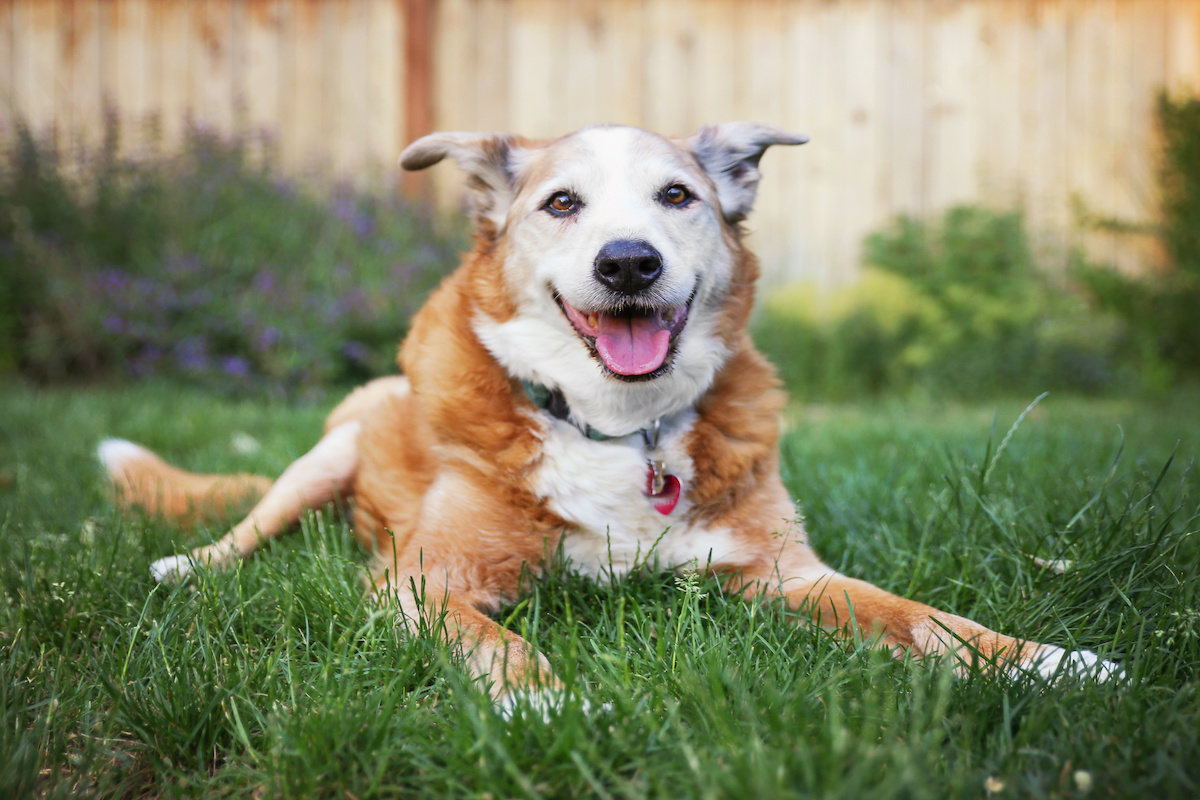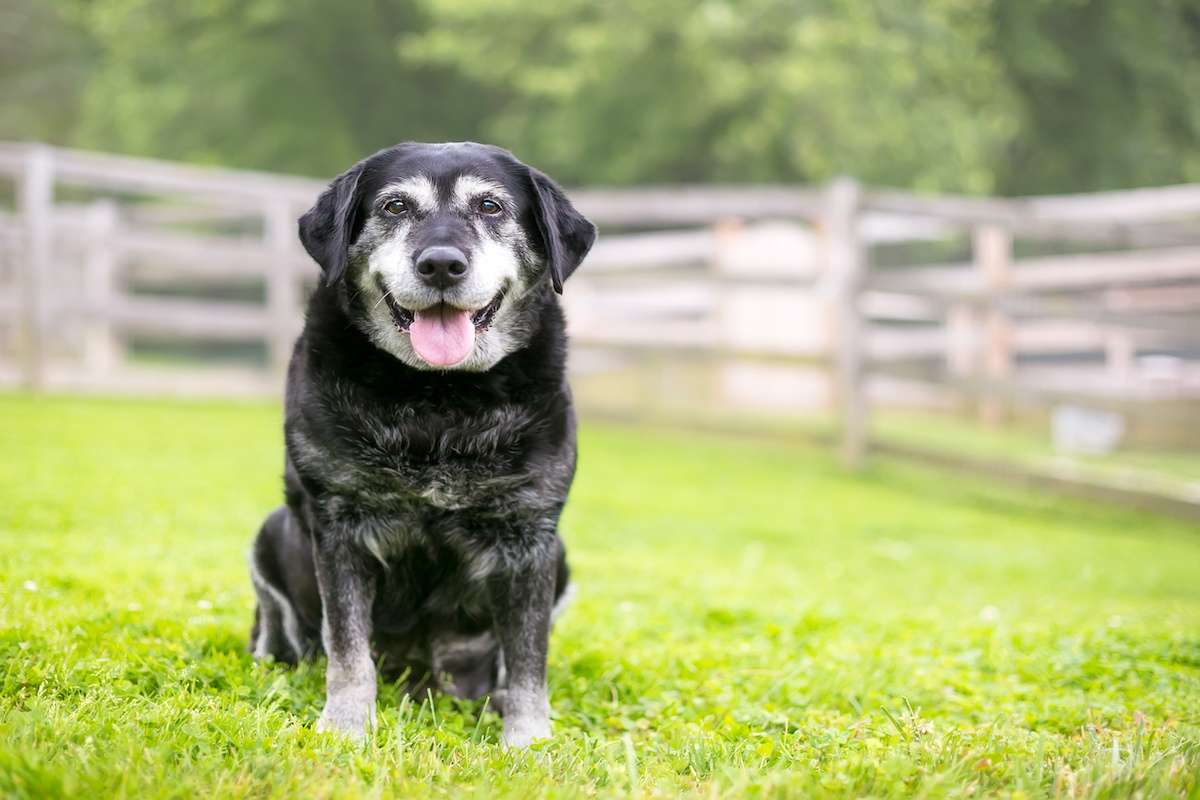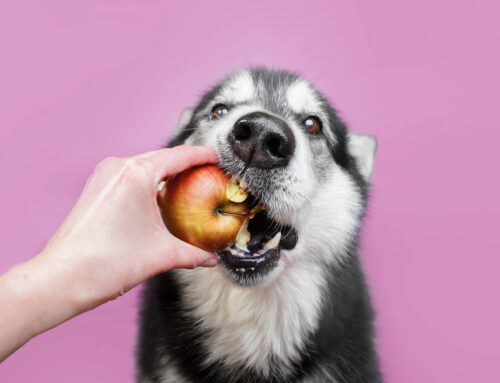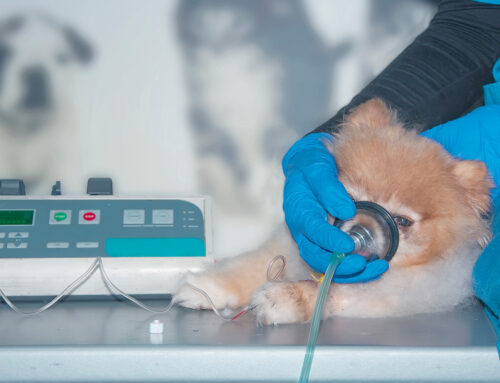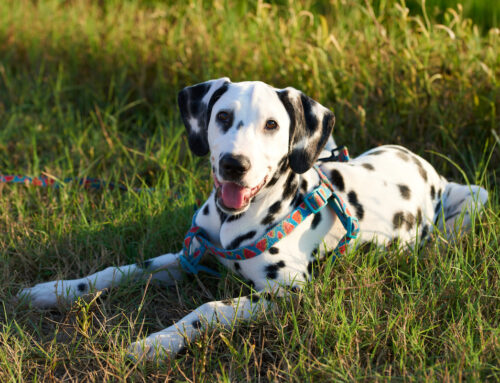Senior dogs bring special sunshine to our lives. Whether you’ve had your senior dog since it was a puppy or you recently adopted a senior, you certainly have a dog that will love and appreciate you until its final days.
Are you wondering how to care for a senior dog? Senior dog care is a bit different than what you will find for a puppy for a middle-aged dog. Here, we will show you how to care for a senior dog, including nutritional and medical needs that may arise.
How To Care For A Senior Dog: Feeding And Nutrition
When it comes to feeding a senior dog, you will want to pay special attention to his or her food. This is because senior dogs have different nutritional recommendations, including protein levels in comparison to middle-aged dogs.
A good starting point is looking for senior dog food that is comparable to the food they already have. If you have a specific brand of dog food, switching to the senior version can be the easiest transition for everybody.
Try to keep the flavor and consistency of the food close to what they were eating before. If your dog was eating a chicken flavor kibble, you can continue using this as the senior version of their food.
Why is Senior Dog Food Important?
Do you really need to feed your senior dog senior pet food? Generally, the answer is yes. This is because senior pets have different ingredients than other types of dog food.
Furthermore, senior pet food can help your aging for your companion fend off disease and other physical ailments. The right food can keep your dog’s weight in control, which helps fight obesity and can potentially prolong your dog’s life.
Dental disease is also a major consideration with senior dogs. The right food can help keep the teeth clean between professional cleanings at the veterinary clinic.
There are also senior foods that are recommended to help with kidney disease and failure. Senior dog foods may also help arthritis and alleviate joint pain.
Meanwhile, your senior dog specific nutritional needs also play a role. Some senior dogs are lacking in different areas of nutrition. This can be remedied by specific types of food.
If you are not sure what kind of food to feed your senior dog, your veterinarian can be of great assistance.
Dental Care for Senior Dogs
As your dog ages, you will need to pay special attention to its teeth and consider routine dental care.
Depending on the age and physical condition of your senior dog, it is a good idea to have them undergo a teeth cleaning. This will help remove any teeth that might be causing pain. Meanwhile, it helps to care for the gums of your dog and prevent dental disease.
However, there are several reasons why your senior dog may not be able to undergo a dental cleaning at the veterinarian. The good news is that your veterinarian will know if there are any issues before being put under anesthesia. Your pet must be put under anesthesia to get through the process of a dental cleaning.
Some of the reasons why your dog may not be able to go under anesthesia include poor kidney function. Your senior dog’s kidneys must be in good working condition to withstand going under for a dental cleaning.
If you are worried about your dog going under anesthesia for teeth cleaning, there is good news. Most dogs do great under anesthesia regardless of age or physical condition. A blood test will be done before the procedure to indicate if there are any problems that may conflict with the anesthesia.
Is it too Late to Save my Dog’s Teeth?
If your senior dog’s teeth are in bad condition, here’s some good news. It’s never too late to see your veterinarian and get advice on how to care for a senior dog’s teeth. If a cleaning or dental surgery is not an option, dental care for senior dogs is still possible.
Other than surgery, there are other ways to ensure the health of a senior dog’s teeth. These include:
- Regular brushing of your dog’s teeth at home
- Treats and chews
- Dental diets
- Dental toys
With special care and attention, you can improve your dog’s dental health at home along with the help of your veterinarian.
How to Care for Senior Dogs: Annual Checkups
Just like any other dog, the annual checkup is important for senior dogs as well. This is a time that you get to bring in your furry friend to the veterinarian. You can ask your veterinarian questions or any concerns that you may have with the help of your senior dog.
While doing an annual checkup on a senior dog, a veterinarian will typically look for the following:
- Geriatric pets well get an overall check up on their dental health and discuss the possibility of a dental procedure if necessary
- Your veterinarian will discuss the diet of your pet and if you need to make any special accommodations
- Your senior dog will be weighed and if weight control is an issue, options will be discussed to help with weight loss
- Your veterinarian may discuss parasite control with you. This is because an older dog’s immune system is not as healthy as the younger animals. This means that they cannot fight off disease as easily as younger pets.
- Maintaining the mobility of your pet. The veterinarian will discuss how your senior dog is getting around and if you are noticing any signs of arthritis.
- Your senior dog may need a vaccination update, including rabies
- The mental health of your senior dog. Sometimes order pets need extra stimulation and interaction
- If your senior pet has any environmental considerations, such as stairs, the veterinarian will discuss this with you along with solutions to make everyday life easier on your senior dog
- Reproductive diseases, especially if your senior dog is not spayed or neutered. Dogs that are not spayed or neutered and may be more susceptible to cancer and other diseases
Discussing Changes with Your Veterinarian
If your senior dog is showing any signs of change, whether it be physical or behavior, you’ll want to speak to your veterinarian.
This is because sometimes behavioral changes will become apparent that may align with medical issues. It’s important that you help detect early signs of disease as you interact with your dog on a daily basis. If you do notice any type of behavioral change, you will want to take careful note of exactly how he or she is behaving. Sometimes, the signs may even feel contradictory, such as hearing loss but the dog also appear sensitive to sound.
Some of the behavioral changes that you might discover with your senior dog include the following:
- Increased anxiety when it comes to strange experiences or being away from you
- Increased focalization, where your senior dog is barking more than normal
- Your senior dog may appear confused or disoriented
- You may notice left desire to interact with your family and increased irritability
- Your senior dog decrease or reduce response to you
- Your dog may begin soiling the house more often, which may point to kidney or bowel movement problems
The truth is that dogs can also experience cognitive dysfunction, just like the aging human brain. Back in the 1990s, veterinarians were able to identify brain changes in older dogs that are similar to humans with Alzheimer’s disease.
If your senior pet is suffering from behavioral issues linked to cognitive dysfunction, not all hope is lost. The good news is that there are specific diets and medications available to help.
How to Care for Senior Dogs with Arthritis
Finally, arthritis is another unfortunate fact that happens to a lot of aging dogs. You may notice if your senior pet has arthritis if they are favoring one limb, or they may be struggling to stand up from a lying down position. You may also notice that they are hesitant to climb stairs, jump or they prefer to sleep more often.
There is also good news for senior dogs with arthritis. One way to help keep the arthritis pain at a lower level is by making sure the dog gets enough exercise and has a proper diet. This can help control the weight of your dog, alleviating pain that is experienced from arthritis.
Furthermore, there are anti-inflammatory drugs that can work as pain relievers for pets. It’s very important that you do not give pain relievers to your dog that are Intended for humans. This is especially true with ibuprofen, which can be highly toxic to dogs. If your dog ever gets a hold of ibuprofen, contact your veterinarian immediately and be prepared to induce vomiting.
Get Help with Care for Senior Dogs
Do you have a senior dog and need Veterinary Care? Animal Care Center is happy to give your aging companion an exam and help put them on the path to great health. Call our office today to schedule an appointment.

